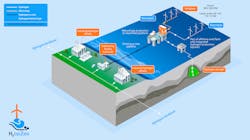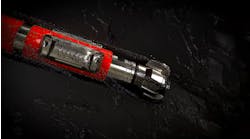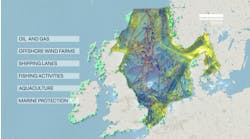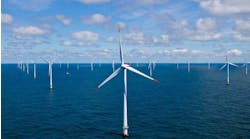North Sea duo awards H2opZee green hydrogen study contracts
Offshore staff
THE HAGUE, the Netherlands — The H2opZee green hydrogen consortium of RWE and Neptune Energy has awarded technical feasibility study contracts to Siemens Gamesa and Dutch engineering contractors H2SEA and Enersea.
These will support concept engineering work for the project’s feasibility phase. The consortium aims to develop the H2opZee offshore green hydrogen project, announced earlier this year, in the North Sea before 2030.
A joint feasibility study, which started in June, should continue until early next summer. It forms part of Phase 1 of H2opZee in which the partners are assessing various technical concepts and potential development locations for generating green hydrogen offshore, with transportation to shore via pipeline.
However, tender methodology has yet to be defined for the second (implementation) phase.
Under the new contract awards, H2SEA will perform concept design and engineering for the offshore platform. Enersea will handle concept design for the pipeline and Siemens Gamesa the wind turbine generator systems concept work, with remaining technical work supported by in-house engineering at RWE and Neptune Energy.
In addition, the consortium is working with offshore infrastructure owners to evaluate various export options via the existing pipeline network to shore.
Neptune Energy’s managing director in the Netherlands, Lex de Groot, said, “Lessons learned through Neptune’s support for the PosHYdon offshore hydrogen pilot will be applied to H2opZee.”
H2opZee aims to build 300-MW to 500-MW electrolyzer capacity far out in the North Sea to produce green hydrogen, powered by a dedicated offshore wind park, with the hydrogen transported to land via a 10-GW to -12 GW capacity pipeline.
The project is an initiative of TKI Wind op Zee, supported by the Dutch government, which aims to develop a value chain of offshore wind and green hydrogen production in the Netherlands, and deliver technology and knowledge that could be exported worldwide.
It builds on learnings from the AquaVentus and PosHYdon pilots.
09.27.2022



